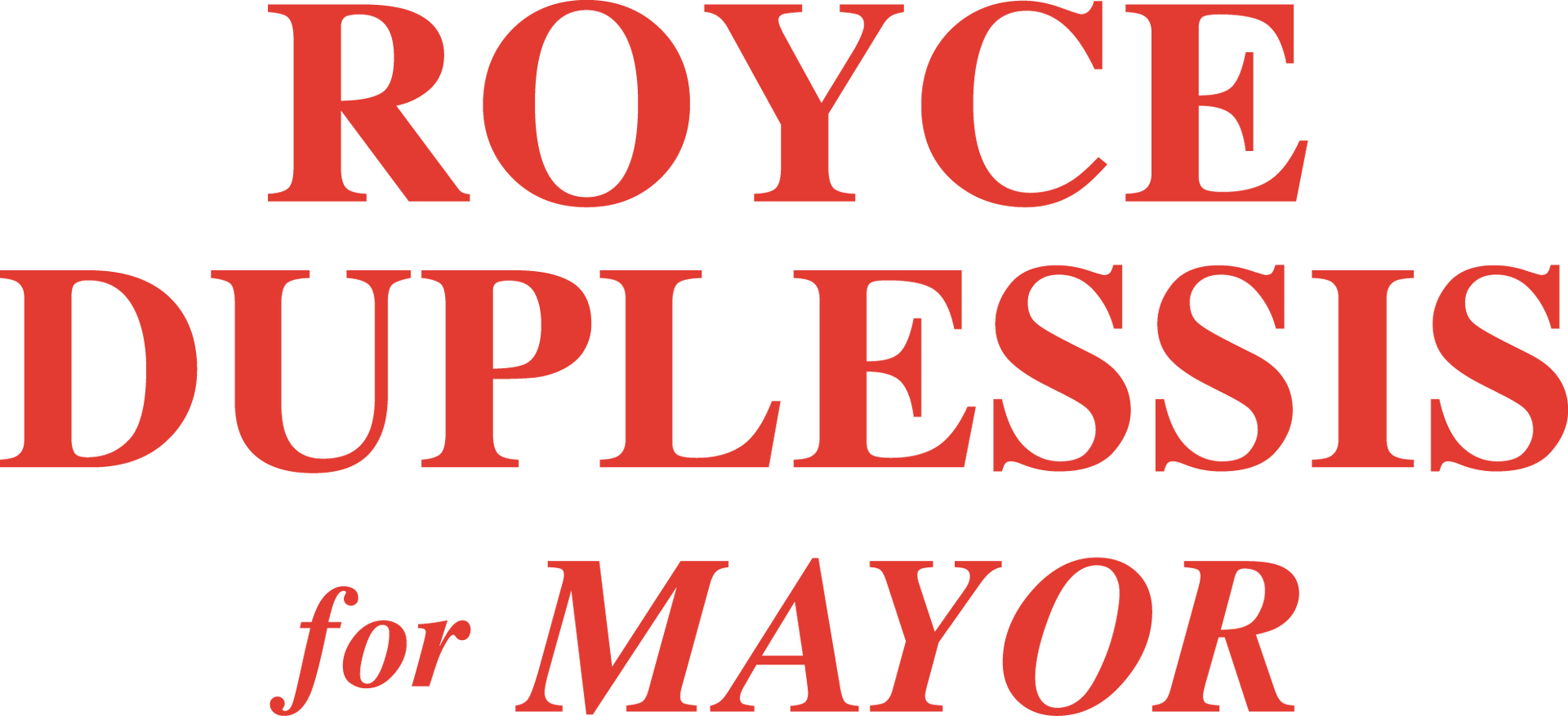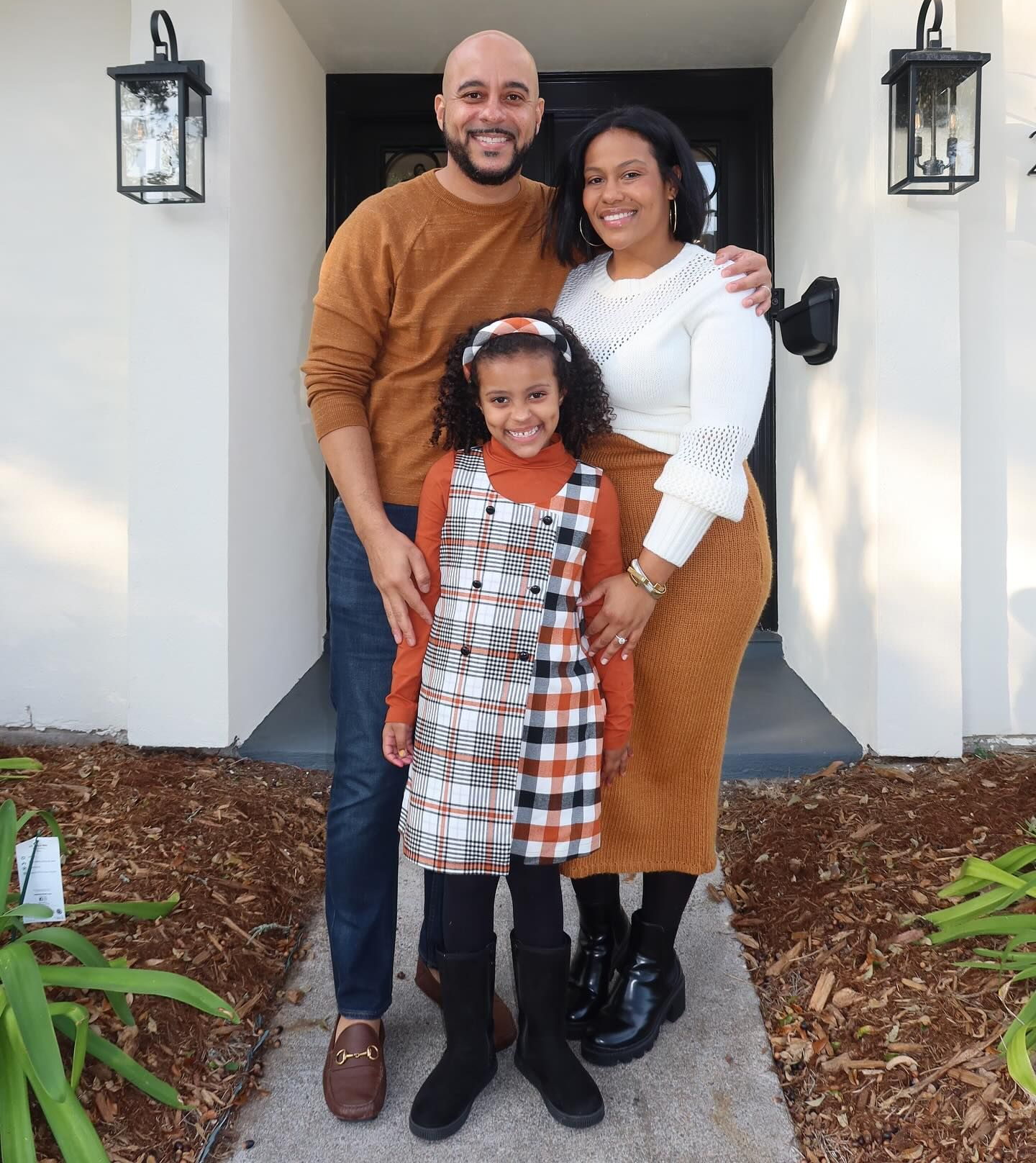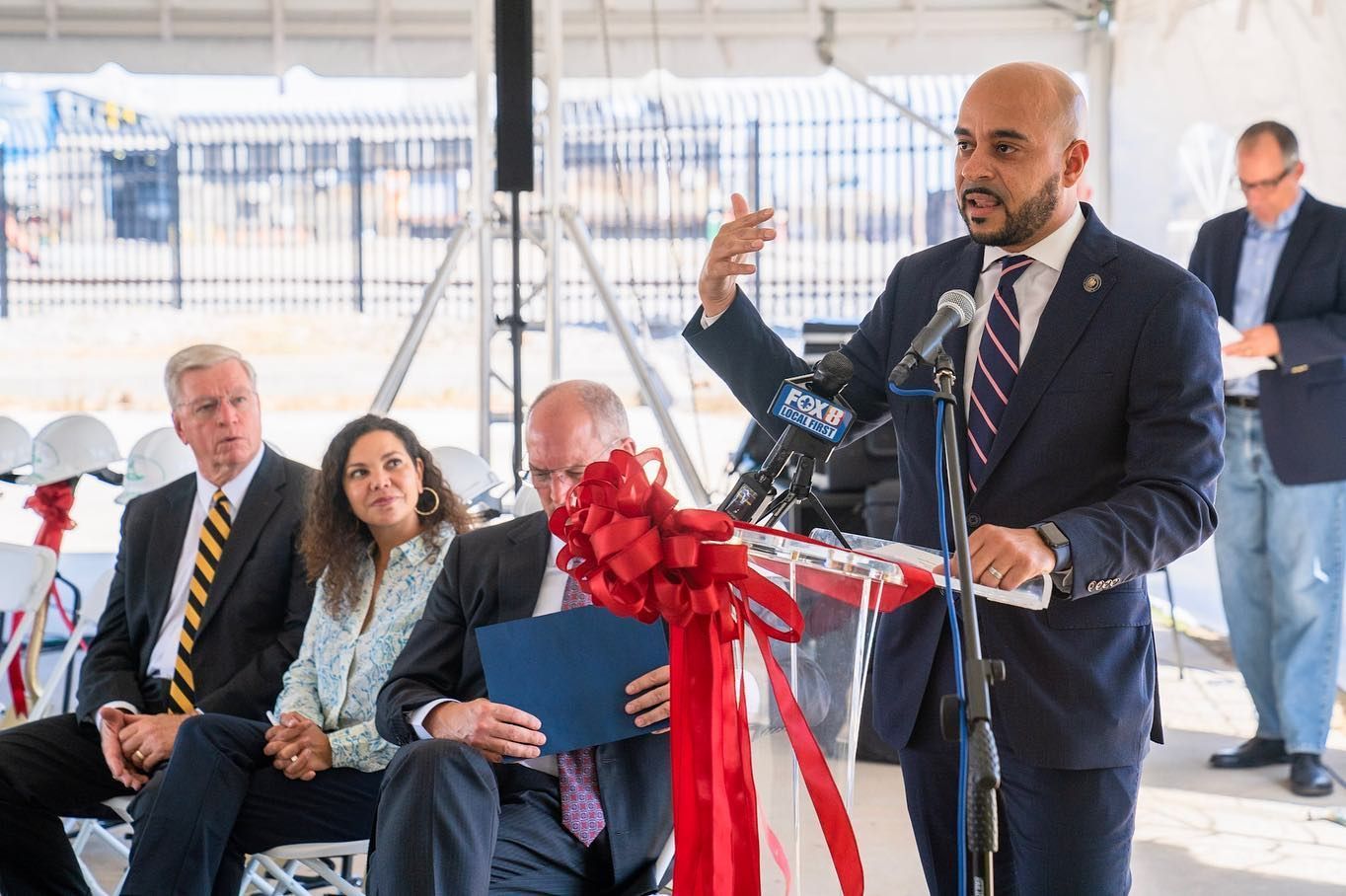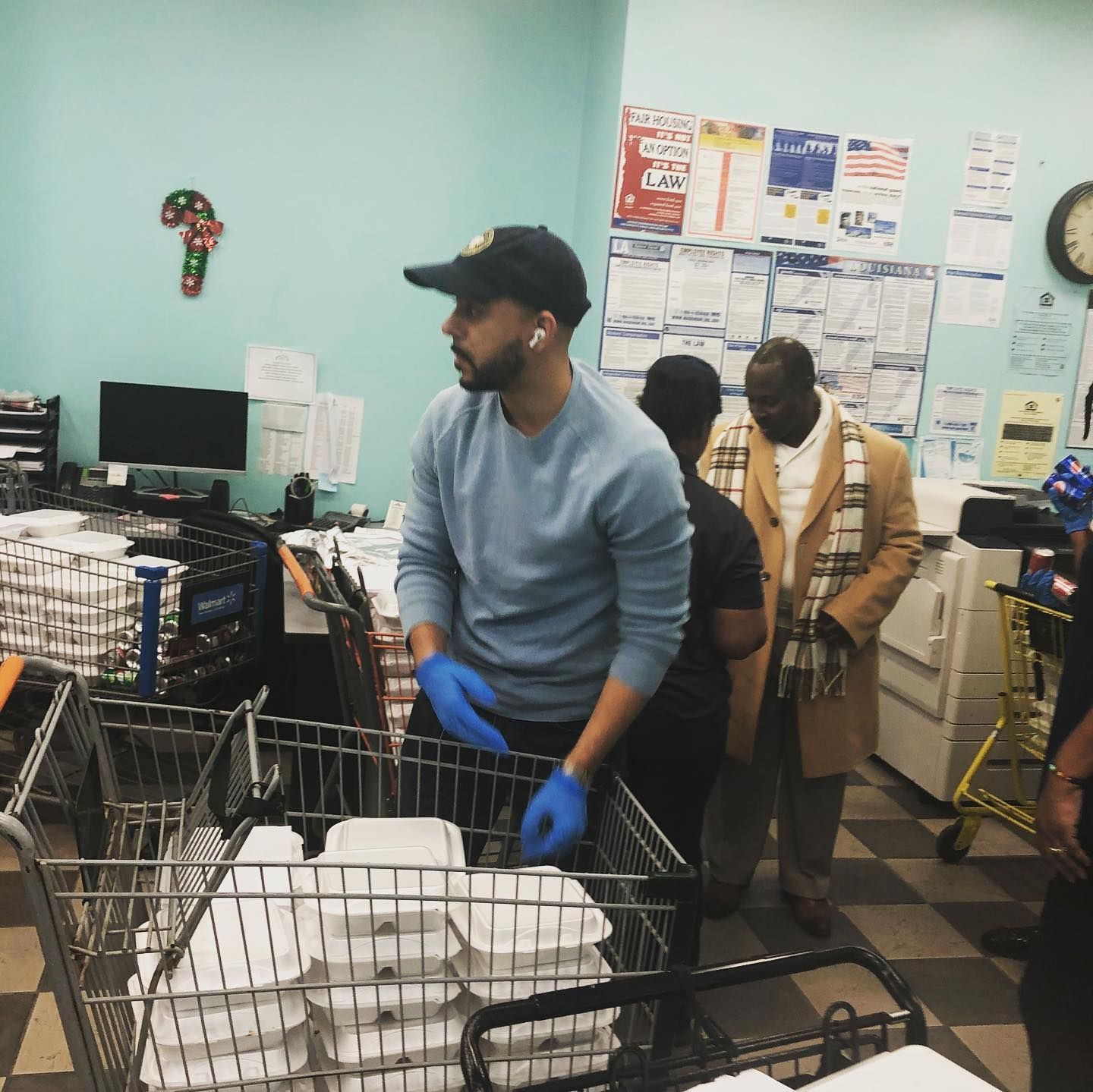Housing
New Orleans is home
Royce Understands:
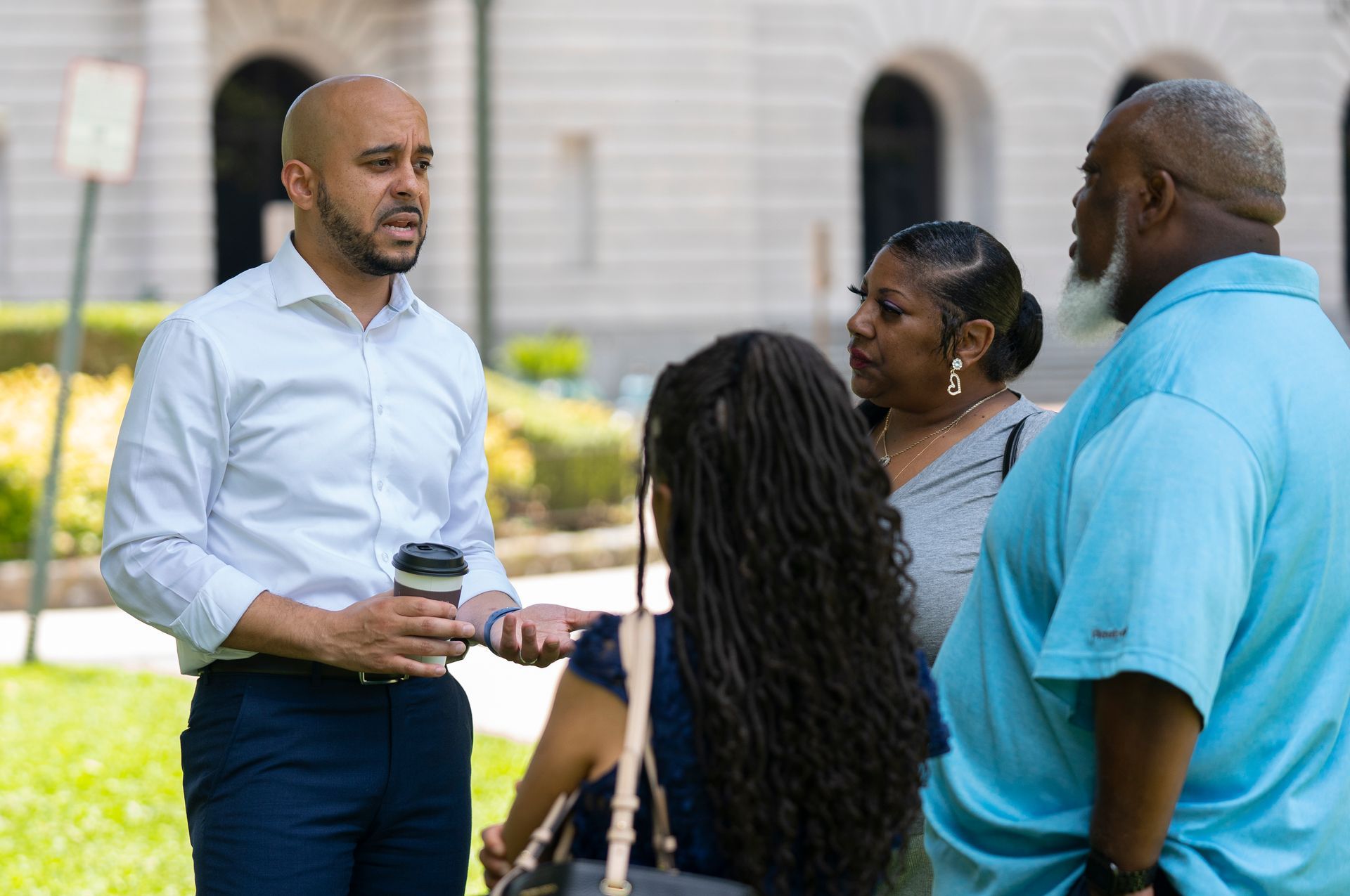
New Orleans needs affordable housing now:
- Since 2004, the share of severely cost-burdened renters in New Orleans has jumped from 24% to 34%, compared to a rise from 24% to 26% nationally.
- Since 2019, the median sale price of a home in Orleans Parish has increased by 18%, reaching $337,500 in 2023.
- According to a 2023 PBS news story, Nearly two-thirds of renter households (62%) in New Orleans are cost-burdened, paying over 30% of their income on housing.
- Louisiana is the most unaffordable state for homeowners insurance, and as a result, homeowners spend on average 3.84% of their income on insurance premiums.
- New Orleans must increase affordable units and support working-class residents.
Our historic buildings are a meaningful part of our culture and identity, but maintaining those structures in a warm, humid environment is a challenge. We should build on programs like the Preservation Resource Center’s Revival Grants that provide working-class residents with resources to maintain generational homes.
New Orleans has one of the nation’s highest residential property vacancy rates. Nearly 25% of the dwellings in New Orleans are vacant in part because landlords paying exorbitant insurance costs struggle to find renters who can afford the inflated rents.
- We need targeted programs that bring vacant residential properties back into commerce.
Housing is not just about rental units and homes; it is also about wages and access to public transportation.
- Industry data as of August 2025 shows an average rent of $1,795 across all property types in New Orleans, which is $65 higher than the previous year, a roughly 3.8% annual increase.
- New Orleans’ renters need an annual income of at least $66,000 to afford an average rental unit.
- Fewer than 34% of jobs in the region are accessible by public transportation within an hour or less.
- The Data Center reports that New Orleans’ median household income is just over $55,000. Do not let this mislead you; that does not apply across the board.
- The median income of White households is $97,500.
- The median income of Hispanic households is $57,000.
- The median income of Black households is $38,100.
HousingNOLA’s 2024 Report Card states:
- “New Orleans has 158,828 housing units and needs more than 55,000 additional affordable rental opportunities to properly house all residents. If we hope to close the ever-widening racial wealth gap, we must create first-time homeownership opportunities for the 21,000 potential buyers.”
New Orleans has seen a 62% drop in allocations of “9% Low-Income Housing Tax Credits” (LIHTC) in the last 15 years. These credits, awarded by the Louisiana Housing Corporation (LHC), are essential to financing the construction of affordable units.

Royce Will:
- Produce at least 40,000 additional affordable housing units in the City of New Orleans within the next 10 years by working with public and private sector stakeholders and leveraging the Housing Trust Fund, Low-Income Housing Tax Credits, Historic Tax Credits, and more.
- Target incentives to bring vacant residential rental units back into commerce because maximizing existing housing stock is the quickest way to bring more units online.
- Aggressively grow opportunities for more New Orleanians to own their own homes because homeownership is a significant step toward creating generational wealth.
- Support our teachers, first responders, healthcare professionals, and other essential workers through targeted homeownership programs that provide soft second mortgages and contributions toward down payments and closing costs.
- Focus on code enforcement practices to keep residents in their homes and return vacant properties to commerce by emphasizing compliance over punishment.
- Coordinate code enforcement with neighborhood stabilization strategies that prioritize long-time residents.
- Lead a city-wide initiative to accelerate the installation of fortified roofs, ensuring at least 25% of homes achieve this standard.
- Prioritize real enforcement of short-term rental laws. Those following the rules deserve a level playing field, and no one should be above the law. Accountability, fairness, and consistency will ensure legitimate operators aren’t undercut by those breaking the rules.
- Help more New Orleanians maintain and afford their historic homes with a specific focus on our seniors and working-class property owners.
- View public transportation as a tool to support affordable housing. Ensuring RTA services are affordable, reliable, and accessible is good for our economy and our environment. High-quality public transit gives our citizens more housing options by making it quicker and easier for them to get to work, school, church, grocery store, and all the other places they need to go.
- Invest in programs that allow more New Orleanians to install solar energy production and storage at their homes and commercial properties.
- Streamline New Orleans’ permitting process to reduce construction delays and costs, enabling more timely and affordable development of housing across the city.
